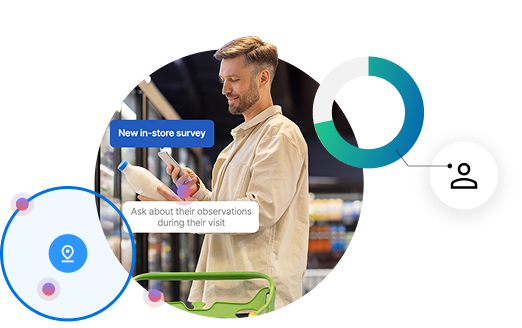As the field of market research evolves, so too does the means by which insights are gathered. In the United States, the online panel has long been a staple of market research methodologies. However, in recent years, there has been a noticeable decline in the use and effectiveness of these panels. This article dives into the changing landscape of market research, exploring the reasons behind the decline of the US panel.
With advancements in technology and the rise of alternative research methods, such as social media analytics and big data analysis, the once-dominant online panel is facing significant challenges. Consumers are becoming increasingly harder to reach, and with the rise of artificial intelligence, panels are riddled with fraud, and participation rates are lower than ever. Due mostly to companies who own panels that are commoditizing the industry, trying to offer clients lower prices for consumer access, then turning around and pushing those price decreases onto consumers by paying them less. Then you are left to wonder – what representative consumer is spending 25 minutes of their time for a “500 reward point” incentive that equates to $.50? This results in a decrease in the assurance of quality responses brands can trust. Because of rampant fraud, the online panel structure itself has become outdated and is losing trust with companies who have utilized these sources to gather insights on their consumers over the last two decades.
To understand the implications of this decline, we will examine its overall impact on market research and the opportunities and challenges that lie ahead. By exploring these changes, we can gain insights into how market researchers can adapt and align with shifting consumer behavior, ensuring the accuracy and relevance of future research endeavors.
What is a “panel” in market research?
In market research, a panel refers to a group of individuals who have been selected to participate in surveys, studies, and other research activities. These individuals are typically chosen based on specific demographic criteria to ensure a representative sample of the target population. Panelists provide valuable insights and feedback, most commonly via digital surveys, which researchers use to make informed decisions and shape marketing strategies.
Traditionally, panels were recruited through various means, such as phone interviews, mail surveys, or face-to-face recruitment. Panelists would then be contacted periodically to participate in research activities, often receiving compensation for their time and effort. The US panel, in particular, played a crucial role in gathering consumer opinions and preferences, providing valuable data for businesses to make informed decisions.
Another popular concept in market research is probability sampling, this methodology has also had declining effectiveness due to its time-consuming nature, high costs, and the reduced likelihood of consumers responding to phone or mail surveys in an era where requests for our time are overwhelming. This shift led to the emergence of online panels, which initially thrived when the internet was a novelty, and people were eager to engage in online activities. However, as the novelty wore off, participation in these panels became less appealing to the average consumer, particularly given the minimal incentives typically offered.
The decline of the US panel
In recent years, the popularity and effectiveness of the US panel has been on the decline. Several factors contribute to this shift in the market research landscape. Firstly, consumers are becoming increasingly difficult to reach. With the proliferation of smartphones and the rise of ad-blockers, traditional methods of panel recruitment and engagement are no longer as effective. Consumers are bombarded with survey requests from brands and market research companies and may choose to ignore or decline participation, leading to lower panel participation rates. Even with champion consumers who are interested in surveys, they don’t engage because online panels pay close to nothing for their time.
The panel structure itself has come under scrutiny for its lack of diversity and representation. Traditionally, panel participants were recruited through conventional methods like landline telephone surveys or email requests, which were initially effective. However, as consumer behavior evolved, these methods became less representative, and the quality of the data suffered. This shift led to a skewed demographic representation in survey panels, with certain groups being overrepresented and others underrepresented, undermining the reliability of the data.
As society becomes more diverse, the limitations of the panel structure are becoming evident, leading to a loss of confidence in the accuracy and relevance of the insights gathered.
The cost associated with completing surveys from panelists has become a significant concern. Panel companies typically compensate consumers between $0.05 and $0.25 for taking a 25-minute survey. This low compensation adversely affects completion rates, as many individuals are unwilling to devote a substantial amount of their time and provide feedback for such minimal return.
Due to these challenges, widespread fraud has emerged across the US panel industry. Real people are increasingly reluctant to participate in surveys, yet large panel companies continue to prioritize quantity over quality, striving for total completions. This approach leads to the provision of outdated and inaccurate data to clients, resulting in poor decision-making and a lack of insight into the products or services being evaluated.
Implications for the Market Research Industry
The decline of the US panel has significant implications for the field of market research. Firstly, it challenges the accuracy and reliability of insights gathered through traditional panel methods. With lower participation rates and the underrepresentation of certain groups, the insights obtained may not truly reflect the preferences and opinions of the entire population. This can lead to misguided marketing strategies and ineffective decision-making.
The decline of the US panel underscores the need for market research companies to adapt and adopt new research methods centered around validated consumers who provide validated insights. This includes treating consumers fairly by offering them adequate cash compensation for their time and providing a high-quality survey experience on their phones, where they spend hours every day.
Social media analytics and big data analysis offer vast amounts of data that can provide valuable insights into consumer behavior and preferences. By leveraging these alternative methods, market researchers can tap into a wider and more diverse pool of information, ensuring more accurate and relevant insights.
However, it is important to note that alternative research methods also have their limitations. They may not always capture the nuanced insights that can be obtained through direct engagement with panelists in a more stated line of metrics. Additionally, issues of privacy and data protection need to be carefully addressed to maintain consumer trust and ensure ethical research practices.
Alternative research methods
The decline of the US panel has paved the way for the emergence of alternative research methods that offer new opportunities for gathering insights. Companies like MFour have been on the front lines of implementing validation across all of their market research methodologies. They have also created and maintained the highest-rated mobile panel in the US thanks in part to its Fair Trade Data® commitment. Simply put, paying panelists fair cash compensation for their survey responses. Resulting in industry leading 95% completion rates for surveys lasting up to 20 minutes. MFour takes it a step further by giving researchers the ability to target surveys to panelists based on observed app, web, or in-store behaviors.
MFour’s innovative approach extends beyond just fair compensation. They leverage advanced technology to enhance the quality of their data collection. By utilizing GPS and geofencing technology, they can ensure that the panelists’ responses are not only timely but also contextually relevant. This allows for more precise targeting and richer insights, particularly for location-based studies. Additionally, MFour’s use of multimedia in surveys, such as the inclusion of photos and videos, enriches the feedback and provides a more engaging experience for panelists.
These advancements have positioned MFour as a leader in the market research, consumer and alternative data industries, setting new standards for data accuracy and respondent engagement. As traditional panels continue to face challenges, the success of companies like MFour demonstrates the potential of embracing technology and ethical practices in reshaping the landscape of market research. This shift towards more innovative and fair approaches is likely to continue, offering businesses deeper and more reliable insights into consumer behavior.
Adapting to the Changing Landscape
The decline of the US panel in market research necessitates a shift in approach and the adoption of alternative research methods. While panels have traditionally provided a reliable source of consumer insights, the changing landscape requires market researchers to adapt and explore new methodologies for gathering data.
To adapt to the changing landscape of market research, other companies can take several steps to rebuild trust within the industry. Firstly, embracing transparency is crucial. Companies should openly communicate their methodologies, compensation rates, and data usage policies. This transparency helps build trust with both panelists and clients, ensuring that participants feel valued and clients are confident in the integrity of the data.
Secondly, investing in technology is essential for companies to stay competitive. Utilizing advanced analytics, artificial intelligence, and machine learning can help in refining data collection methods, improving data accuracy, and offering more insightful analysis. This not only enhances the quality of research but also allows for more efficient and cost-effective processes.
Finally, prioritizing ethical practices is key to rebuilding trust in the market research industry. Companies should adopt fair compensation models, similar to MFour’s Fair Trade Data™ commitment, to ensure that participants are adequately rewarded for their time and contributions. Additionally, stringent data privacy and security measures should be implemented to protect participant information and maintain their trust.
By adopting these strategies, market research companies can adapt to the evolving landscape, rebuild trust, and continue to provide valuable insights to businesses in an increasingly data-driven world.
Validation is the Future of Market Research
Validation is increasingly becoming recognized as the future of market research. In an era where data is abundant but often questionable in quality, the ability to validate responses and panelists to ensure the reliability of data is paramount. Validation techniques, such as cross-referencing responses with external data sources such as app, web, and location, using advanced algorithms to detect inconsistencies, and implementing rigorous quality control measures, are essential in maintaining the integrity of market research.
Moreover, the rise of digital technology and the proliferation of mobile devices have opened up new avenues for real-time validation. Companies can now leverage geolocation data, biometric sensors, and other digital footprints to confirm the authenticity of respondents’ behaviors and responses. This not only enhances the accuracy of the data collected but also provides richer, more nuanced insights into consumer behavior.
As the market research industry continues to evolve, the focus on validation will only intensify. Companies that prioritize and invest in robust validation techniques will be better positioned to deliver actionable, trustworthy insights. In turn, this will enable businesses to make more informed decisions, drive innovation, and maintain a competitive edge in an increasingly data-driven world.
To learn more about MFour’s Market Research methodologies, visit mfour.com or schedule a call with one of our consultants to see how validation can help you achieve your research goals.




